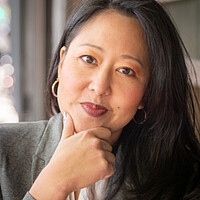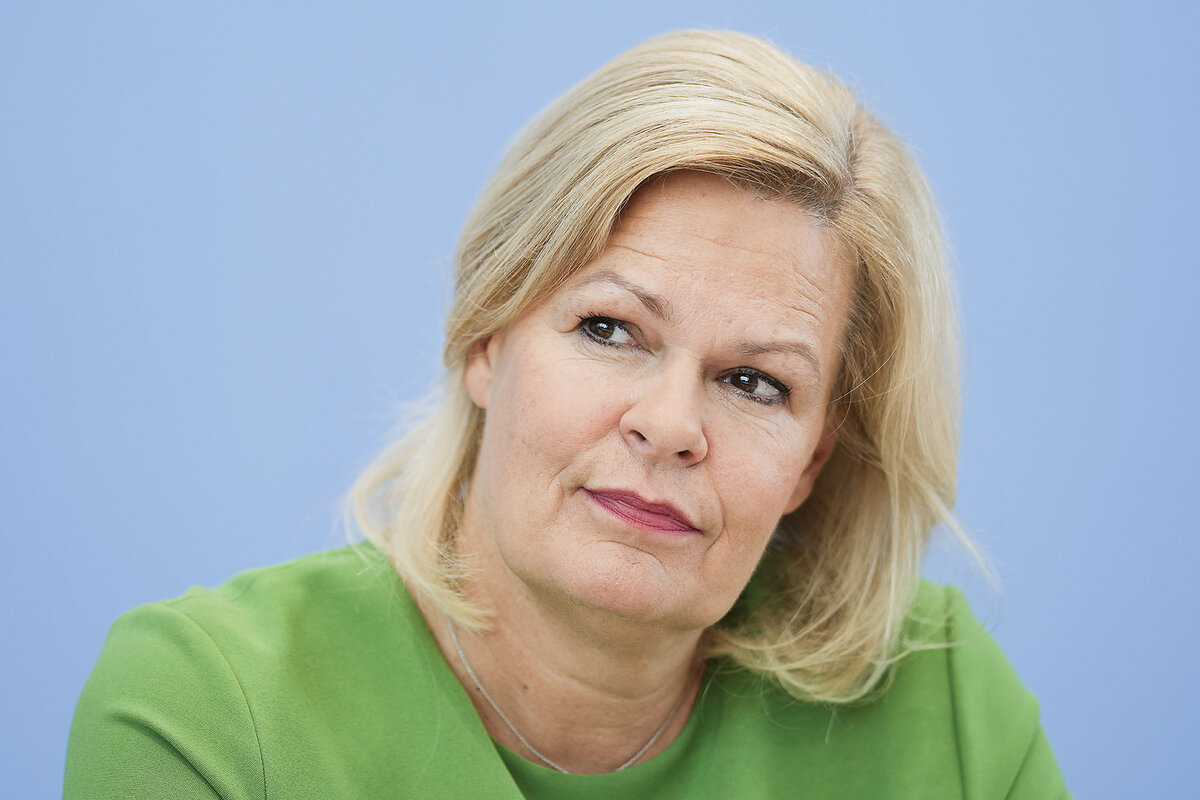Germans can now be dual citizens. But will society treat them like they belong?
Loading...
| Berlin
Miman Jasarovski has brown skin in a society still wrestling with its history of white supremacism.
His father emigrated from Macedonia to Germany in 1968 to work in the metals industry, as part of a guest worker program initiated amid a labor shortage. He settled in Dusseldorf, where Mr. Jasarovski was born and raised.
Germany doesn’t grant birthright citizenship as the United States does, so Mr. Jasarovski grew up in Germany with a Macedonian passport. He applied for German citizenship as an adult, only to run up against bureaucratic hurdles so onerous he gave up after three years.
Why We Wrote This
A story focused onIn Germany, those born of foreign descent have had to choose between holding German citizenship and rejecting their heritage, and getting a foreign passport and being estranged from their native land. Now Berlin is addressing that dilemma.
“When you’re born and raised in Germany as a so-called foreigner, you feel like a stepchild of the country,” says Mr. Jasarovski, a former social worker who now advocates for citizens’ rights. “Like not the original child, but like Cinderella who does the dirt work and has to be there for everybody but has no rights.”
Now after decades of waffling, parliamentary members have finally passed laws allowing dual citizenship. That means people such as Mr. Jasarovski could keep, say, a Macedonian passport while also holding German citizenship.
While announcing the new law, Chancellor Olaf Scholz said, “We are saying to all those who have often lived and worked in Germany for decades, who abide by our laws, who are at home here: You belong to Germany.”
Yet the reality of integrating new citizens with dual identities is more complicated than a rule change.
The government has at the same time raised hurdles for applicants, who must now prove they aren’t receiving social welfare, even if they are disabled, single parents, or caretakers for family members, for example, to have a chance at citizenship. There’s also the ongoing question of how society would continue to view a more diverse German population, now that the far-right parties in the country have showed real heft in boosting their share of the vote from 11% to 16% in last week’s European Parliamentary elections.
“In a conceptual sense, [the German law] acknowledges many of us have multiple languages [and] cultures. And families have been growing up in this completely normal context. It could be an acceptance of multiplicity as completely normal,” says Olga Gerstenberger, a researcher with the migration-focused media group With Wings and Roots. “But you still have this very strong idea of homogeneous German identity. It’s something very present and pushed by conservative parties.”
“They are German. German, German, German.”
Germany’s longtime ban on dual citizenship often sidelined new arrivals.
Immigrants to Germany might draw identity from a mixture of cultures and places, yet that ban inevitably forced a decision: Give up home country passports for German citizenship, or live and work in Germany with no citizenship rights. And for generations, people of Turkish, Polish, Syrian, and other backgrounds chose the latter.
That old law presented German identity as a “monolith,” says Gulay Türkmen, a cultural sociologist and author of “Under the Banner of Islam: Turks, Kurds, and the Limits of Religious Unity.”
“The previous citizenship law was a testament to the idea that there is no place for hyphenated identities in Germany, that you cannot be German-Turkish, German-Polish, etc. but only German,” he says. “In such an understanding, citizenship was seen as a loyalty pledge.”
Politicians against dual citizenship usually argued that one cannot be loyal to two countries at once. Yet studies show lived experiences are more complicated, says Dr. Türkmen, with people in Germany who have at least one foreign-born parent or whose heritage is influenced by migration stating they can feel both German and Polish, for example.
About a quarter of the population in Germany now has a migration background, and the new rules lag behind the country’s reality. Many dual-identity residents have also been able to hold two passports via exceptions: for instance, Gökay Sofuoğlu, chairman of the interest group Turkish Community in Germany. But the gesture itself is critical, says Mr. Sofuoğlu.
“It’s a very, very, very important change for Germany. The sense of belonging to this country naturally changes when you have the right to vote. And politicians are now required to also reach this mass of people, of new voters.”
Martin Manzel, an immigration lawyer who is fluent in Turkish, hails the change. “Now there’s no first- and second-degree German. The German state recognizes them as Germans, so they are German. German, German, German.”
Lingering questions of identity
While the law is clear, logistical and practical barriers must yet be overcome.
Mr. Manzel expects thousands of Turks in Germany to apply for citizenship, and says the result could be years-long waits. At least 1.3 million Turkish citizens live in Germany, according the Statistical Office of the European Union.
“The administrative side is going to be a mess,” says Mr. Manzeau, who points out that wait times for citizenship application processing already stretch beyond several years, and administrative positions are understaffed. “Let’s say you have 50,000 more applications. I don’t know how they’re going to handle this.”
Mr. Jasarovski, the Macedonian passport-holder who was born and raised in Germany, knows that waiting game well. His first application for German citizenship entailed repeated criminal background checks and requests for proof of employment and other documents. But because of family problems, the deadline expired before he could meet all paperwork requirements. With the memory of the first run, he says he couldn’t bring himself to start the process again.
“When you think about what they’re looking for from you [when you apply], it’s the opposite of empowering,” he says. The application has rested “on the bench under the window so long that the first sheet turned yellow under the sun. I was always like, ‘I’ll do it tomorrow, not today.’”
The integration and belonging that Chancellor Scholz refers to might take some time to develop, as German society grapples with questions of identity. Already, Turkish-Muslim migrants are discussing exit plans as far-right, anti-migration populists gain power, writes Rauf Ceylan, a German-Turkish sociologist at the University of Osnabrück, in an email.
Meanwhile, Turkey under President Recep Tayyip Erdoğan is actively courting the loyalty and votes of the three-milllion strong Turkish diaspora; more than 1 million Turks in Germany can still vote in Turkey.
“In this context, there is uncertainty among migrants,” says Dr. Ceylan. “After all, if you are still perceived as a foreigner despite being naturalized ... why should you naturalize? It is therefore currently difficult to assess what effect Olaf Scholz’s gesture will have in the medium and long term.”








